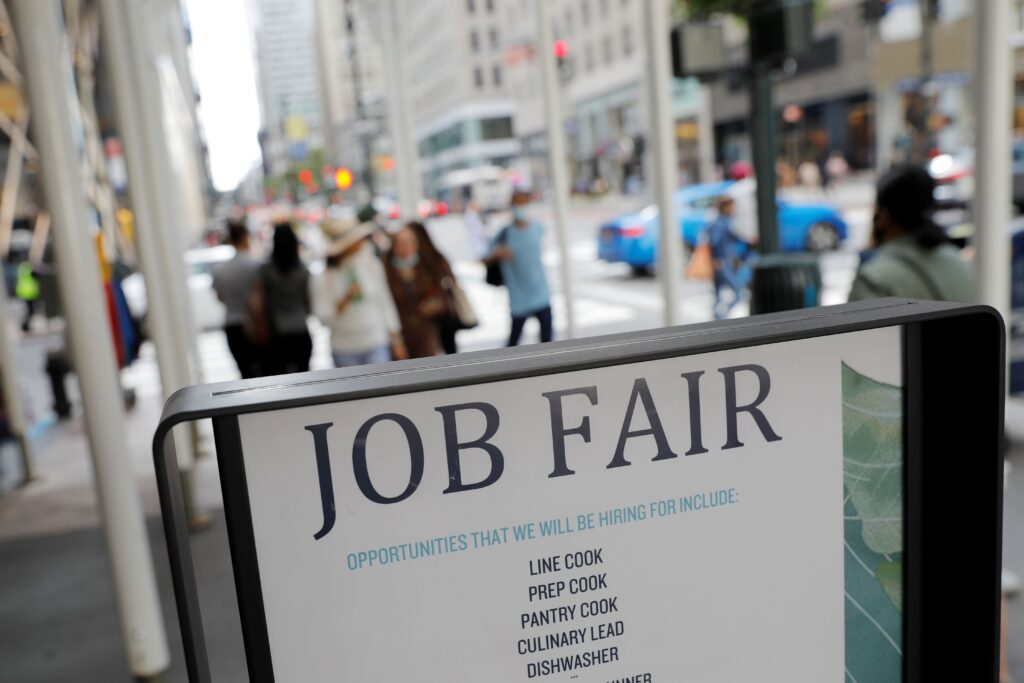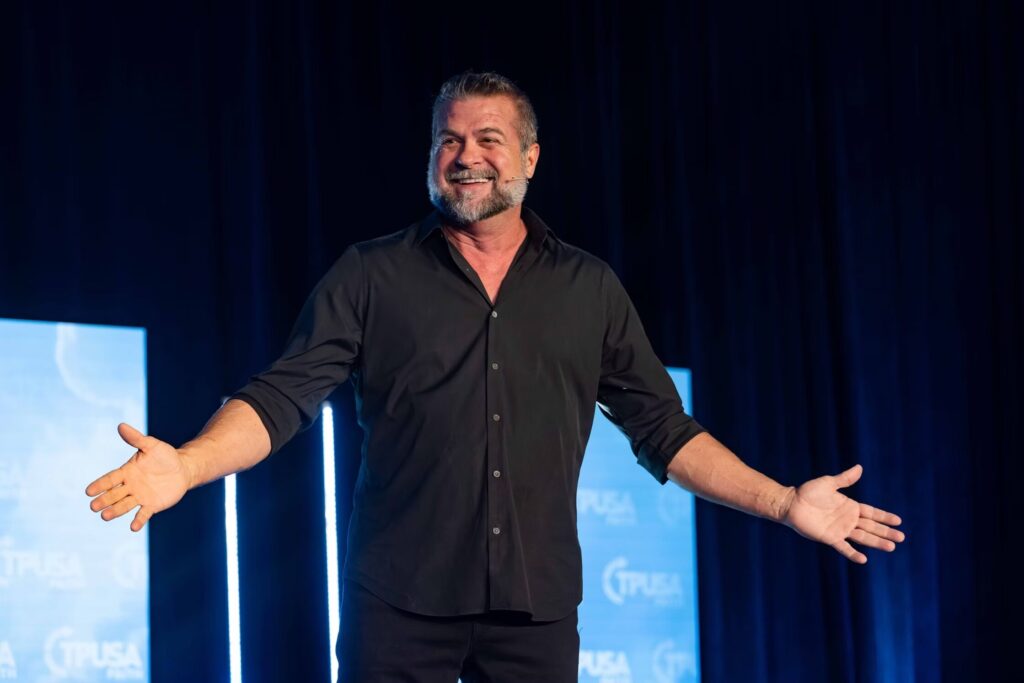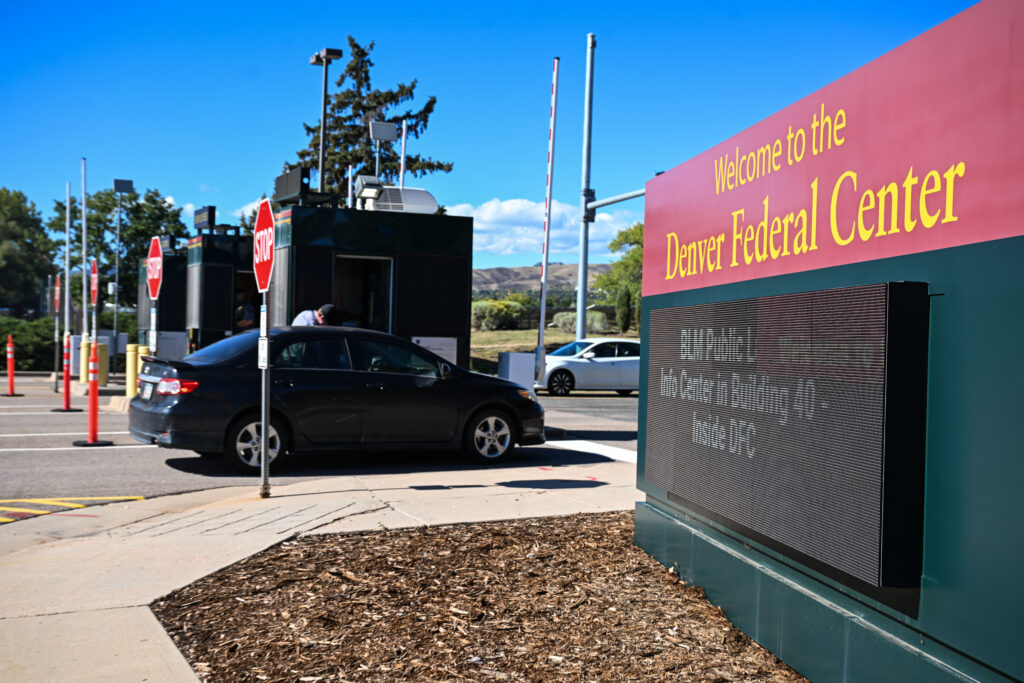Q&A with Steve Schuck | ‘Politics is too important to be left to politicians’

Steve Schuck. It is tempting to leave it at that – just those two words – and segue to today’s Q&A.
The Colorado Springs businessman is, after all, among the fairly few players in Colorado politics over the past half-century who’ve never held political office – yet he needs no introduction.
Certainly, his decades as a real estate developer at the helm of his Schuck Communities have earned him a prominent place on the state’s business landscape. But it is his political profile – onetime GOP gubernatorial contender; time-after-time patriarch to the Pikes Peak Region’s Republicans; all-time champion of school choice – that has shaped his image most in the public’s eye.
Which isn’t to say everyone reveres him; inevitably, public figures have detractors. In Schuck’s case, they naturally include some but not all of El Paso County’s perennially outflanked Democrats. Yet, even they, by and large, have a healthy respect for him.
And his many friends, fervent fans and enduring allies, just as inevitably, would follow the former prep football coach unflinchingly into battle no matter the foe.
But enough of our yakking. Even this little bit of background probably goes without saying, so let’s cut to the chase. Here’s the man in his own words.
Colorado Politics: Colorado has its share of prominent business entrepreneurs who have made the leap into politics. Our new governor and his immediate predecessor are, of course, among them. Yet, in the business world overall, the Jared Polises, the John Hickenloopers – and the Steve Schucks – are still pretty rare. Most business leaders steer clear of hardball politics or, at most, participate from the sidelines via political contributions or lobbying.
You, by contrast, not only once ran for governor but also are a fierce and highly vocal public policy advocate. So, what possessed you to stick out your neck and jump into the political fray when you knew it wouldn’t help and could even hurt your bottom line?
Steve Schuck: My company, celebrating our 50th anniversary this year, is in the business of developing land for large residential, commercial, industrial and mixed-use projects, requiring my extensive involvement with elected and appointed political officials, as well as their policies and practices. So, by necessity, I had to develop extensive political skills and relationships over many decades.
What really sent me over the edge, however, was when Gov. Dick Lamm invited me to join his business advisory council, giving me a firsthand look at how public policy is made and, more importantly, by whom.
What shocked and disturbed me most was how little business experience those at the political table had and, as a result, how little they understood and trusted real people making everyday decisions in pursuit of their self-interests, and how little respect they had for the marketplace. Those self-righteous, condescending politicians and bureaucrats had an attitude of superiority, wanting to impose their wisdom upon the great unwashed.
At that point in my life I had minimal involvement in campaigns and had never ever given the remotest consideration to running for office myself. Being 4-F and never having served in the military, having vivid childhood memories of veterans returning from World War II, playing ball in college with veterans returning from the Korean war, and having seen the incredible sacrifices of those who served in Vietnam, I decided that if I felt so strongly about misguided leadership, it was time for me to put aside all of the reasons why one should not run for public office and volunteer to take my turn in the barrel.
My country and my community have been incredibly good to Joyce and me, and if serving in public office required sacrifices, both personal and business, paying that price was the least we could do.
Being an elected official was never on my bucket list, but using whatever means available to me to expand opportunity and freedom by using my business skills, and access to getting more accomplished with less, was always high on that list. My motivation was to utilize all that I had learned and done in the rough-and-tumble, highly competitive, demanding real estate development world to do public good. Partly altruistic, partly patriotic, and partly a desire to demonstrate and prove that business people had value to contribute beyond creating wealth for themselves.
Steve Schuck
- Founder, chairman of the board, Schuck Communities in Colorado Springs.
- Founder, with wife Joyce Schuck, of Parents Challenge, which provides scholarships and grants to disadvantaged children in public and private schools.
- Sought the Republican nomination for governor of Colorado, 1986.
- Civic distinctions include “Citizen of the Year” from the Colorado Springs Chamber of Commerce, the Colorado Association of Homebuilders, the Urban League, the Pikes Peak Association of Realtors and the El Paso County Republican Party; a medal of merit from the University of Colorado Board of Regents; Step 13’s first award of leadership; the David S. D’Evelyn Award for Inspired Leadership from the Independence Institute; the YMCA’s Woodgate Award, and the National Center for Neighborhood Enterprise’s Achievement Against the Odds “Pharaoh” Award. Then-Gov. Owens proclaimed Oct. 15, 2004 Steve Schuck Day.
- Has sat on numerous boards including with the Daniels Fund, the Alliance for School Choice, Life Skills Center, Rocky Mountain Community Foundation, Step 13, the Bighorn Center, the Colorado Alliance for Reform in Education, the Independence Institute, the Colorado Association of Commerce and Industry, Kids Voting, The Career Building Academy, Colorado Springs Chamber of Commerce, Pikes Peak Y-USO, Junior Achievement, Boy Scouts, Western National Bank, Penrose Hospital, National Jewish Hospital, and the UCCS and CU Foundations.
- Holds a bachelor’s degree in economics from the Wharton School of Business at the University of Pennsylvania in Philadelphia. After graduation worked as a high school math teacher and a football coach.
CP: You have had some time – more than three decades – to reflect on your bid for the GOP nomination for Colorado governor in 1986. What did you take away from that experience that you still feel is worth passing on to aspiring candidates for elected office? If you had it to do over, would you?
Schuck: The first questions I ask aspiring politicians is “why?” As they struggle with the answer, it becomes very clear, very quickly, whether that individual wants “to be” or “to do.”
Generally the level of my support and enthusiasm is determined by what I hear and feel. Hard to assess, but high on my agenda is trying to determine the extent to which he or she is sincerely and truly dedicated to results and outcomes and the level of personal and political sacrifice he or she is willing to make to produce them.
As to your question about doing it again, let me state, as clearly as is humanly possible, that being a candidate was the greatest honor and privilege ever afforded me. Yes, I would do it again in a blink if only 30 years younger and if Joyce didn’t threaten divorce. Those who do run have my profound, deep respect, regardless of their ideology and persuasion, as long as they are driven to do the right things for the right reasons. While the practice of politics is hardball and ruthless, I still look and hope for vision, idealism, principles, character and courage in those seeking my support.
CP: Speaking of your fierce policy advocacy – you are of course known first and foremost as an ardent champion of educational choice and opportunity. You have become nationally prominent as a linchpin in the school-choice movement and, arguably, it is your personal passion – so heartfelt, you never needed an elevator speech on the subject. What drew you to the movement in the first place, and what keeps you so relentlessly engaged in it?
Schuck: It should come as no surprise that when I decided to run for governor, my first step was to build a business plan, a road map, that would define where I wanted to go, why, how, tradeoffs, etc. So, we developed a series of position papers in all the major areas for which state government had significant responsibility.
None presented a clearer course of action than K-to-12. Results had been disgraceful for years and the trajectory was unacceptable. Schools supporting the most disadvantaged students performed most poorly, and the longer students were in a failing school, the farther behind they got despite decades of increased spending. Scores declined because teachers’ unions were/are more focused on the interests of their adult members than those of students. They had, and still have, a greater and greater stranglehold on boards of education, so absent structural change, there was no reason to expect improvement.
All of this because the public education system is a monopoly, meaning schools do not have to compete. The system was, and is, upside down.
So, the solution was simple. Milton Friedman proposed a concept over 50 years ago to break the monopoly by empowering all parents with school choice, creating a marketplace that would force schools to produce results in order to attract students.
Empowering parents, particularly those in low socio-economic circumstances whose kids were condemned to the worst-performing schools, was, and is, easy to get passionate about. Well-to-do families exercise school choice – why not poor families? Nothing less than the survival of the freedoms, liberty, and opportunities that make our country so special are at stake. Jefferson said it 240 years ago and it is just as true today.
CP: If school choice is your passion, your legacy is Parents Challenge, the Colorado Springs-based nonprofit you and your wife Joyce founded. Tell us a little about what Parents Challenge does as well as its long-term mission. Is its goal in part to set an example for education policy makers?
Schuck: Parents Challenge uses privately raised dollars to provide low-income parents with resources, both financial and informational, that empower them to choose the schools they think are best for their children.
When the Colorado Supreme Court rescinded legislation that had been passed that would have provided public funding to do the same thing, my choice was to either wring my hands and sulk or to DO something. Under the outstanding current leadership of Deborah Hendrix, we are proud to have empowered the parents of more than 2,000 children for over 20 years.
We are proud that we can do so because over 200 individuals and foundations voluntarily contribute their hard-earned dollars, none of whom stand to gain anything except the satisfaction of knowing they are advancing educational freedom and opportunity for those less fortunate.
Parents Challenge is the only program in the United States that empowers low-income parents with a full menu of educational choice: traditional public schools, charter public schools, private schools and homeschooling. Our 50 or 60 sister programs all limit choices to only private schools.
In addition, we are the only program in the country that hosts 15 or 20 parental empowerment sessions each year, conducted in the evening with free dinner and childcare, open to the public, and led by experts in subjects requested by our parents themselves, such as college and career readiness, financial literacy, bullying, how to best handle parent-teacher conferences, family dynamics, etc.
Because Parents Challenge is so unique, providing both a full menu of school choice and parental empowerment mentoring sessions, several national leaders have asked us to make it accessible to others throughout the country, which we are in the process of doing. Parents Challenge is a very cost-effective operation, utilizing minimum personnel to generate major impacts, both for the families we serve and the community at large, and we are excited about making it available to others who share our concerns and aspirations.
CP: You have long been a must-visit for Republicans seeking higher office – and seeking your blessing. You and Joyce have opened your home and extended your hospitality for innumerable fund-raisers on behalf of an endless procession of GOP contenders and conservative causes.
So, let’s have your reading on Colorado’s political pulse: Are we as a state evolving from our characteristic, perennial purple – to blue? Even your decades-long home turf, the historically GOP-dominant Pikes Peak region, now reliably elects some Democrats to the legislature – while Denver no longer elects Republicans. Is the tide shifting against the GOP in a definitive way, or will the pendulum swing back?
Schuck: Anyone who has been around as long as I have has experienced several swings in the political pendulum. Colorado has been red, blue and purple, but we always find a way to correct any movement that is too extreme, be it in one direction or the other.
What is also true, however, is that most of our past and future immigration produces increased urbanization. Much of our traditional, western ethic of hard work, sacrifice, personal responsibility, deferred gratification is disappearing, generating serious political consequences. Political parties may no longer define who we are, so we may see different forms of alignment than has been true in the past.
Politics is too important to be left to politicians, so my greatest interest is in attracting people who have led successful lives, filled with personal and professional accomplishment, to seek public office. In my judgment, the greatest problems facing our communities, state and nation are caused by career politicians who have a need, whether psychological, financial, or otherwise, to be in public office. Red, blue or purple, my goal is to attract people who neither need nor likely want elected office, uncompromised by self-interest.
CP: Members of the Denver Classroom Teachers Association went on strike recently against Denver Public Schools, in part over the district’s ProComp incentive-pay program. What are your thoughts on the face-off and the union’s opposition to incentive pay?
Schuck: As a product of public schools, a former teacher/coach, and the father of a teacher, I admire and believe in our country’s commitment to educating all kids. It is no coincidence, however, that the quality of education being delivered by our public schools began to decline five or six decades ago when teachers decided to bargain collectively, choosing to be treated more like production-line employees than the professionals they had been and should be, judged by the results of their performance.
ProComp was a tremendous step in the right direction, as evidenced by the citizens of Denver agreeing to tax themselves to fund it. Supplemental performance pay, its centerpiece, is a concept that is alien to labor unions, so it should come as no surprise that DCTA has been on a constant mission to eviscerate ProComp.
My guess is that most good teachers favor merit pay. Despite self-serving rhetoric about caring for the kids, unions exist to advance the interest of their adult members, as was so powerfully stated by (the late American Federation of Teachers president) Al Shanker. Unions want what is best for teachers, schools and the system – my interest is in what is best for the kids!
CP: Is the land development business nowadays tougher or easier than when you entered it decades ago – or is it still the rollercoaster it always has been? What impact does the prevailing political climate in any given era have on your industry?
Schuck: You hit the nail on the head. Land development is a rollercoaster ride, always has been and always will be. Surviving for 50 years has not been easy, but we have a loyal, dedicated team of true professionals who make it happen. Ours is not a business for the faint of heart, nor for those seeking stability, regularity, or predictability.
In our great free enterprise system, rewards are not guaranteed, and success is often accompanied by failure. In the last 50 years we have experienced more than our share of both. There is no question that political climate and public policy, whether at the federal, state or local levels, have a dramatic impact on our business, making it that much more important to elect public officials who understand marketplace dynamics and the impacts of their decisions.
The heavy hand of government, be it in the form or regulations, taxation or just cavalier disregard for the value of time and certainty, imposes an expensive toll on every citizen. We have no alternative but to pass those unproductive costs on to consumers who ultimately pay for them. So it is in everyone’s interest to attract and elect public officials who appreciate and celebrate the genius of the marketplace and utilize it to maximize the common good.














